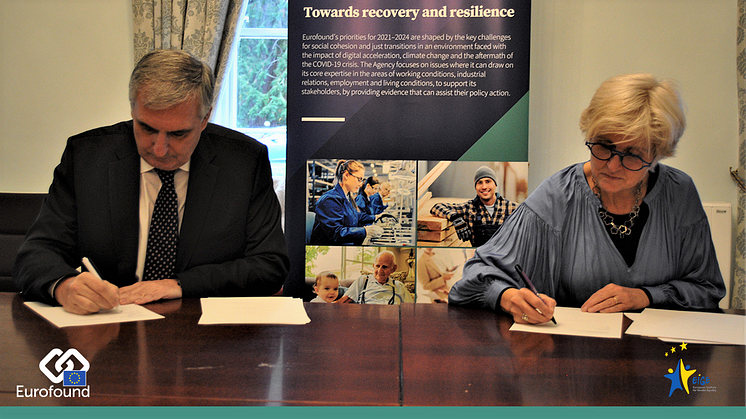Eurofound goes audio with EurofoundTalks
Eurofound has launched its own podcast series, EurofoundTalks, which looks at key topics relevant to living and working in Europe today.
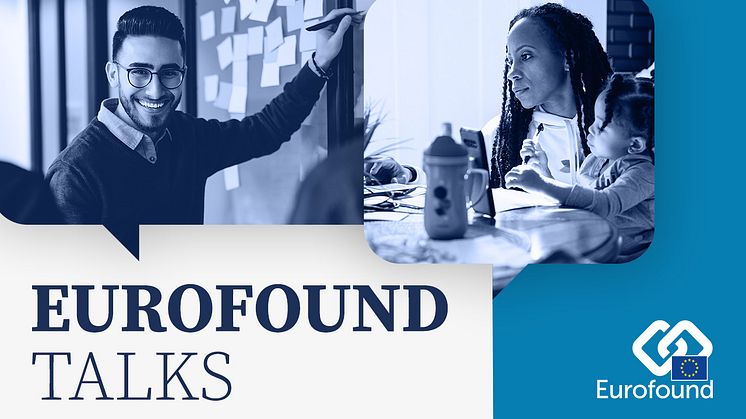
Eurofound has launched its own podcast series, EurofoundTalks, which looks at key topics relevant to living and working in Europe today.

EU Commissioner for Jobs and Social Rights Nicolas Schmit has emphasised the need for a human-centred recovery in Europe following the COVID-19 pandemic, and the important work of Eurofound in combining scientific research with an approach that resonates with people’s lives across the EU.
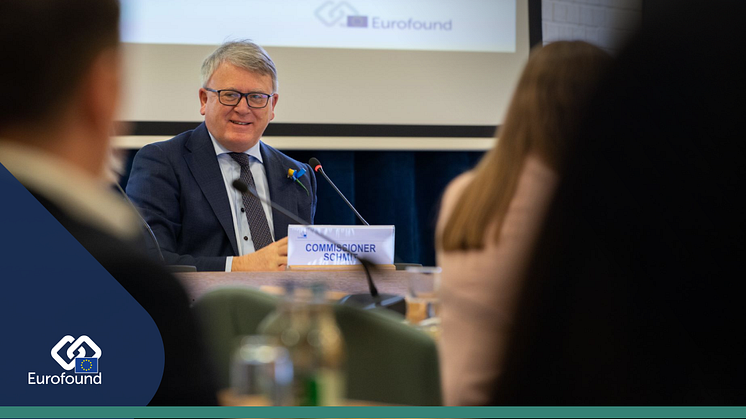
Between 2008 and 2019, reported unmet medical needs in Bulgaria declined from 22.4% to 2.4%. One year after the country’s accession to the EU in 2007, Bulgaria had ranked last among the group of Member States but caught up by 2019 to perform above the EU average at 3.1%. Similarly, the AROPE rate, which is the number of people who are at risk of poverty, severely materially deprived, or living in

Registration is still open for Foundation Forum 2022, a hybrid event that will bring together up to 1000 policymakers, employer and worker representatives, national governments, thinkers and practitioners - online and in Dublin Castle - on Thursday.
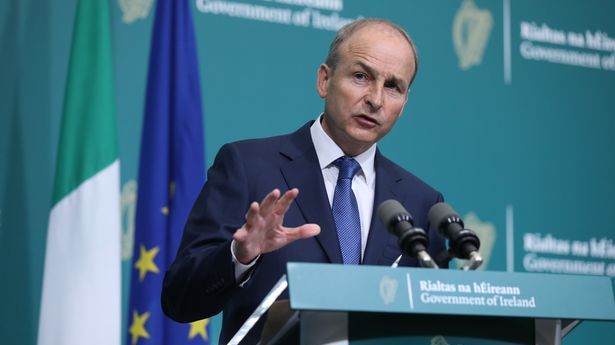
Eurofound, in partnership with the Irish Government, will host a high-level hybrid international event on 3 March 2022 at Dublin Castle, to explore how to build recovery and resilience in the EU in the wake of the COVID-19 pandemic.
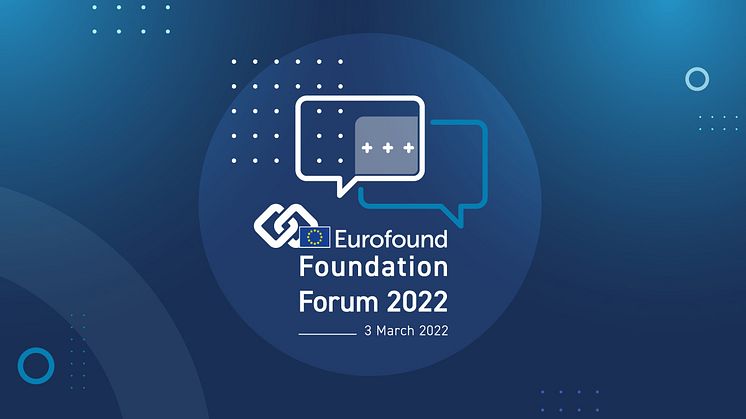
In the decade prior to the COVID-19 pandemic Lithuania had a steady increase in unweighted average disposable income, recording the largest increases alongside Romania. It also recorded the lowest gender employment gap in the EU in 2019. Like other Member States, however, the pandemic has set Lithuania back in a number of labour market and social indicators, and in particular it saw a rise in unem

Eurofound Executive Director Ivailo Kalfin will brief EU Ministers for Work, Employment and Social Affairs (EPSCO) on relevant post-pandemic labour market and social challenges in Europe at the informal ministerial meeting in Bordeaux tomorrow.
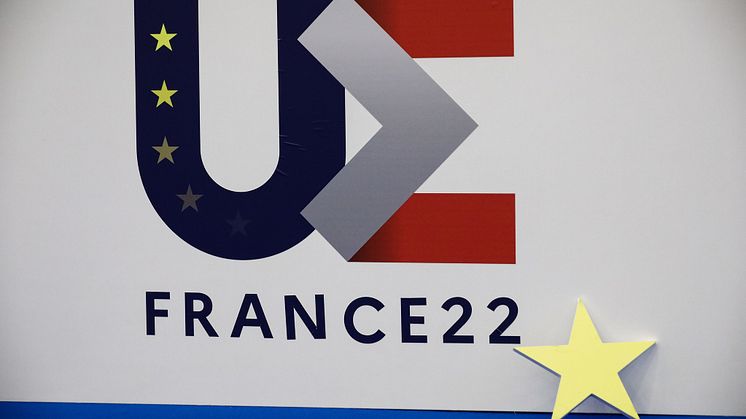
Eurofound has signed a cooperation agreement with the European University Institute (EUI) on research, policy dialogue, learning and traninig, staff and study visits.

The first overview of minimum wage setting for 2022 shows that, while some negotiations are still ongoing, virtually all EU Member States have increased their nominal statutory rates.

Eurofound welcomes European Year of Youth 2022 #EYY2022. The situation of young people in the EU has long been an important focus for Eurofound’s work. Eurofound remains committed to continuing its work to provide policymakers with the most timely, relevant and reliable data and research to address the challenges facing young people.
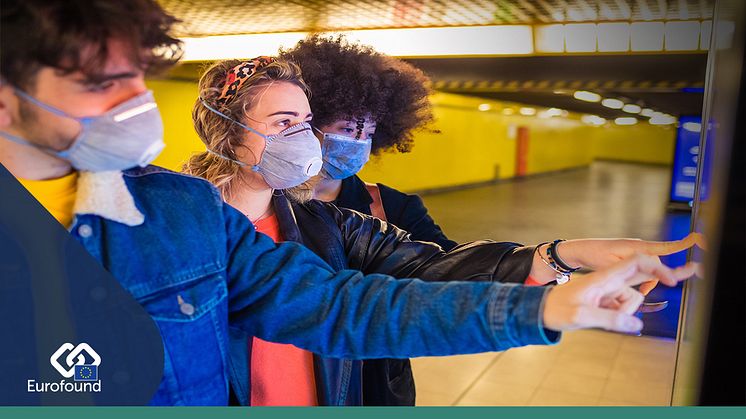
Après les mesures immédiatement prises pour faire face à la crise, les problèmes anciens, qui avaient étaient relégués au second plan parce que le contrôle de la propagation du virus était primordial, refont surface et doivent être abordés. La situation précaire des jeunes en Europe figure au premier rang de ces défis.
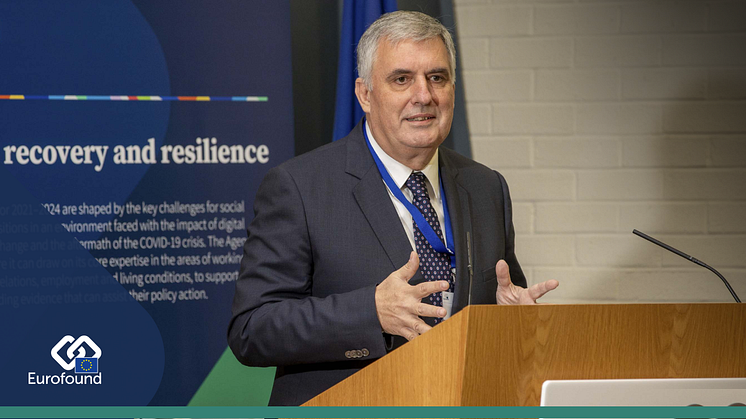
Eurofound’s management met with Irish social partners, Patricia King, General Secretary, ICTU and Danny McCoy, Chief Executive Officer, Ibec, at Eurofound in Dublin, on Wednesday, 15 December 2021, to discuss some of the Agency’s most recent research findings on changes in workplace practices, work organisation, hybrid working, gender, labour market dynamics and the role of collective bargaining.
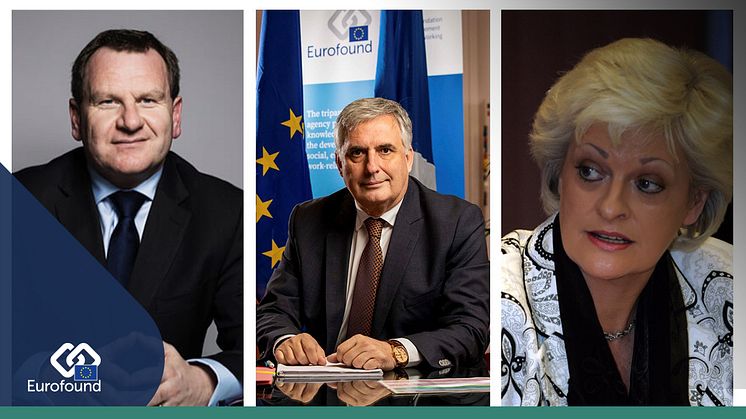
Digitalisation, such as the automation of tasks, digitisation of processes, and coordination through platforms is transforming the way in which people in Europe work. Many workers and businesses stand to gain from these ongoing changes, but some will lose out – potentially heightening labour market inequalities.

Women’s employment will have to increase at a rate at least three times faster than that of men until the end of the decade in order to meet EU targets of an overall 78% employment rate and a halving of the gender employment gap.

Eurofound Executive Director Ivailo Kalfin met with Mariya Gabriel, European Commissioner for Innovation, Research, Culture, Education and Youth in Brussels this week to discuss the impacts of COVID-19 on young people in the EU, as well as the forthcoming European Year of Youth 2022.
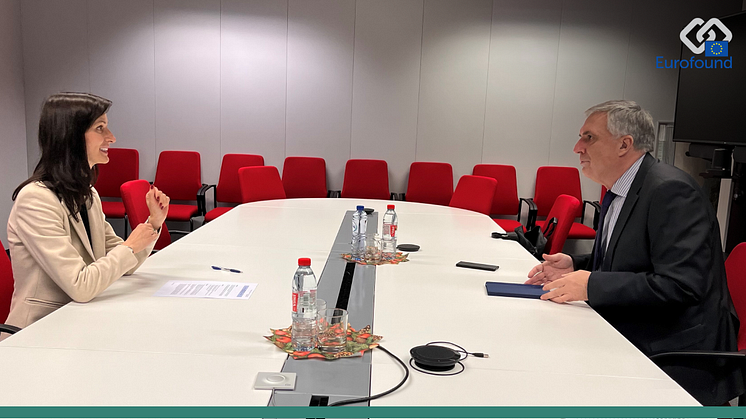
Almost one in four workers (22.4%) in Finland usually worked from home during 2020, according to new analyses published in Eurofound’s recent research report What just happened? COVID-19 lockdowns and change in the labour market. This is the highest proportion across the EU, where the average is 10.8%. All Member States reported an increase of teleworking during 2020, but the largest increases (in

We need to study and understand the blow young people have suffered from this pandemic, in order to adjust recovery and resilience measures to their needs and equip them with the tools to actively shape their present and future.
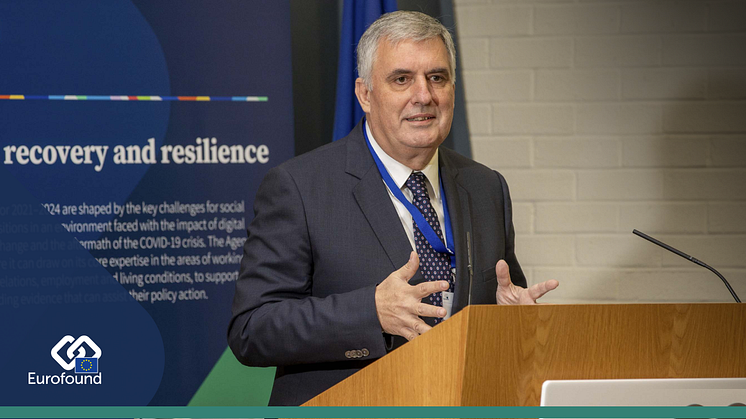
Governments, social partners, grassroots organisations and platforms across the EU have started to pilot initiatives to improve the working conditions and social protection coverage of platform workers.

In 2020, the youth unemployment ratio in Romania was 5.5%, while the EU27 average stood at 7.1%. This ratio, which notes number of unemployed young people as a proportion of the total population of that age group, increased in almost all EU Member States between 2019 and 2020. In Romania, specifically, the figure rose from 4.8%, while the EU average increased from 6.5%.
This data was recently

Ivailo Kalfin, Eurofound Executive Director, and Carlien Scheele, Director of the European Institute for Gender Equality (EIGE) met in Dublin today on the sidelines of Eurofound’s annual Management Board meeting, to discuss latest developments in gender equality in Europe and sign a joint action plan defining future collaboration between the two Agencies.
